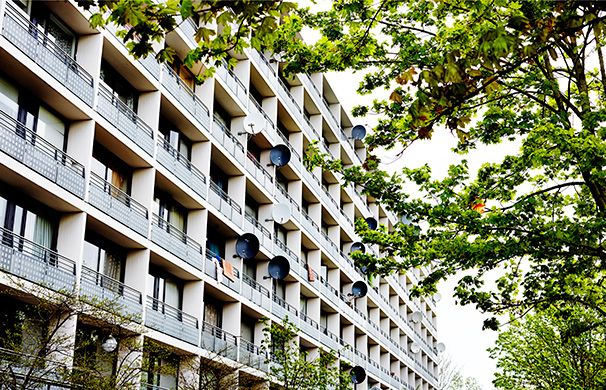The vulnerable neighbourhoods on the government’s annually-published ‘Ghetto List’ probably don’t measure up to the ghettos that Donny Hathaway sang about back in the day.
Nonetheless, this year the government has unveiled a significant reduction in the number of ‘hardcore ghetto areas’ on the controversial list.
A total of 13 have gone from the list compared to last year, and no new areas have been added.
Overall it means that there are now only 15 areas listed this year (see factbox below).
“It’s fantastically positive that progress has been made in so many areas, and that we already now can see the impact of the parallel society package,” said the housing minister, Kaare Dybvad.
“It’s a historic drop in the number of vulnerable areas on all the lists – particularly due to more citizens finding work or education.”
READ ALSO: Danish right and left wingers combine to urge Ghetto List rethink
Gone are a baker’s dozen
The 13 areas removed from the list this year, compared to 2019, are:
Lundtoftegade, Copenhagen
Bispeparken, Copenhagen
Hørgården, Copenhagen
Gadehavegård, Høje-Taastrup
Karlemoseparken, Køge
Agervang, Holbæk
Lindholm, Guldborgsund
Korsløkkeparken, Odense East
Korskærparken, Fredericia
Munkebo, Kolding
Finlandsparken, Vejle
Resedavej/Nørrevang II, Silkeborg
Skovgårdsparken, Aarhus
Since 2010, Denmark has kept an official list of the vulnerable areas around the country.
And since 2018, the list has been divided into three categories: ‘Vulnerable Neighbourhoods’. ‘Ghettos’ and ‘Hardcore Ghettos’
Education, employment and crime
To be identified as a ghetto, 50 percent or more of the inhabitants need to of non-western descent, and then at least two of the following criteria must be met:
– over 40 percent of residents must be unemployed or not taking an education (measured across two years)
– the share of residents convicted of various forms of crime must be at least three times above the national average (measured across two years)
– the share of residents who have at most a basic education must exceed 60 percent of all residents in the same age group
– the average gross income for taxable residents in the area is less than 55 percent of the average gross income for the same group in the region.
Read more about the contentious ‘Ghetto List’ here (in Danish).














